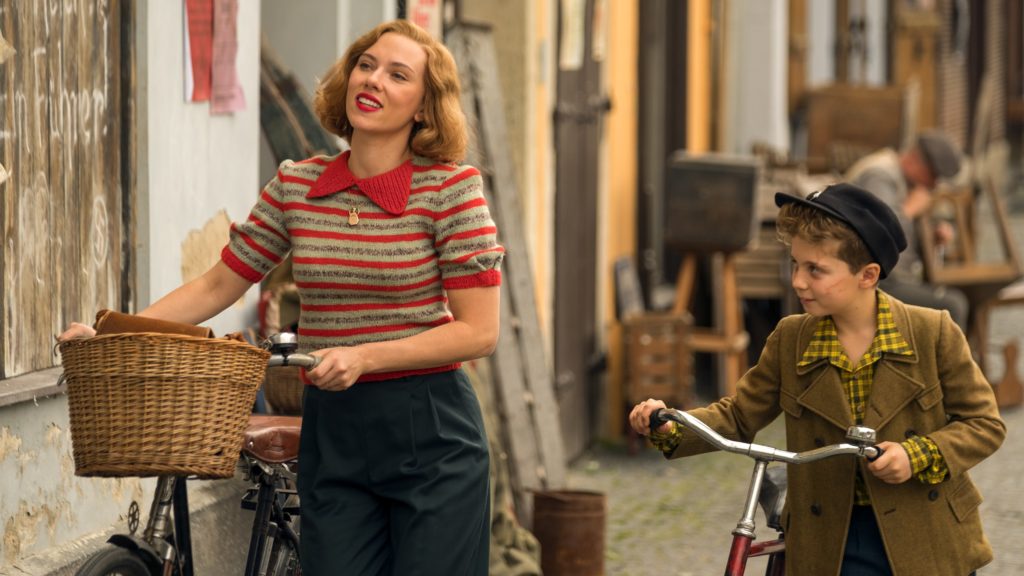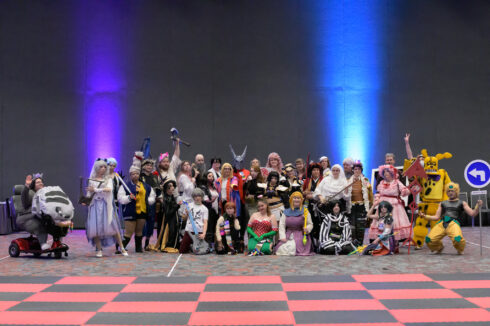Photo ©Fox
WARNING THIS ARTICLE MAY CONTAIN SPOILERS
A lot of us have had an imaginary friend. Johannes (Roman Griffin Davis) is no different. Except that he grew up in a small German town during World War II and his imaginary friend is none other than Adolf Hitler; that is Adolf Hitler through the eyes of a 10-year-old boy. Laughter is often considered a cure for anything, but to some, anything has its limits, and the Third Reich is one of those subjects that are not easy to laugh at. However, following in the footsteps of Mel Brooks and Charlie Chaplin, Taika Waititi decided that the time had come for a black comedy titled “Jojo Rabbit”.

The film follows Jojo, an adorable blonde boy who loves his country, and its leader Hitler, more than anything. So, how adorable can he actually be? During this time, this was not so unusual. The film itself has a montage of archival footage set to a German version of “I Wanna Hold Your Hand” (Komm Gib Mir Deine Hand) by the Beatles portraying the Führer as some sort of popstar. This is just one example of Waititi’s attempt at deconstructing fascist thinking and setting up the audience to understand how outrageous the film they are about to see will be.
Jojo’s mother Rosie (Scarlett Johansson) is the heart of the story. She believes that her son can be good and isn’t the brainwashed little boy that he appears to be. Unknown to him, she is hiding a Jewish teenager, Elsa (Thomasin McKenzie) in their home, who JoJo discovers. Initially, this is more fuel to show the appalling nature of our lead, but it slowly turns into the coming of age movie we were suspecting would appear.

From the beginning of their interactions, Elsa challenges Jojo and even says, “You’re not a Nazi, Jojo. You’re a 10-year-old kid who likes dressing up in a funny uniform and wants to be part of a club.” Hatred soon turns to love, maybe not of the romantic sort, but familiar. Two people who are lost and alone learn to love what they have been conditioned to hate and Jojo finally recognizes the horrors of the world and the man he idolized above all else.
While this might not sound like the set-up of a comedy, Waititi uses wit, farce, and lots of tear-jerking moments to bring new light to one of the worst events in history. You find yourself laughing, almost nonstop, during the first two acts, but then constantly excusing yourself for more tissues in the last one. A lot of the humor comes from the imaginary Hitler, played by the Jewish director Waititi. Waititi did not miss any opportunity to make fun of the dictator with his performance. In his screenplay, when introducing the fantasy character he describes him as “not the Adolf we know and hate, this guy is goofy, charming, and glides through life with a childlike naivety; a real dork.”
The success of this film is up to the viewer. A mix of emotions leave the theater with the audience as the German lyrics of “Heroes” are blasted from inside. Some would still believe that the Holocaust, and all that came with it, is never an appropriate punchline for a joke, while others would leave feeling that this story of love trumping hate comes at an appropriate time in our own world, and sometimes laughter is a temporary cure.



